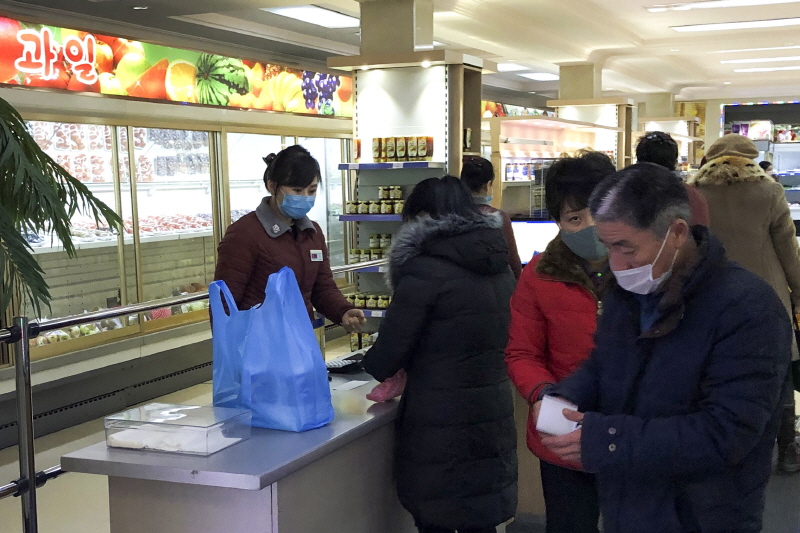The value of North Korea’s currency has plummeted to a quarter of its value at the start of the year, according to a report by Japan’s Mainichi Shimbun on November 27.
The report states that the exchange rate of the North Korean won (KPW) against the U.S. dollar stood at approximately 8,000 KPW per dollar at the beginning of the year. However, its value began to drop sharply over the summer, reaching 16,000 KPW per dollar.
By October, it had fallen further to 18,000 KPW per dollar, and as of November 20, the rate had hit a staggering 32,000 KPW per dollar—just one-fourth of its value in January.

FILE – People shop and trade goods at street markets, known as jangmadang, in Hyesan, Yanggang Province, North Korea, in September 2020.
The Mainichi attributed this dramatic depreciation to growing dissatisfaction and unease among North Korean residents. Citing internal North Korean documents, the report highlighted Pyongyang’s increasing alarm over the currency crisis.
The documents, dated October, criticized ongoing actions that destabilize the exchange rate, describing them as “acts of treason.” One case cited involved security officials illegally converting thousands of Chinese yuan into North Korean won through black market transactions.
The Mainichi also reported on an incident in September where a North Korean citizen was reportedly executed by firing squad for spreading rumors about an imminent currency reform. This comes against the backdrop of the 2009 currency reform that rendered old banknotes worthless, causing widespread hardship. The government’s sensitive reaction to such rumors reflects lingering fear of public unrest stemming from that experience.
The reopening of North Korea’s borders after prolonged closures due to COVID-19 is another factor contributing to the currency’s decline. The resumption of trade with China had raised expectations among residents for more economic opportunities.
However, speculation about currency reform appears to have driven a rush to secure U.S. dollars, further increasing demand for foreign currency and exacerbating the won’s devaluation.

The Mainichi also pointed to growing public discontent and instances of unrest. Since September, deliberate explosions have reportedly occurred at chemical plants, raising suspicions of sabotage. One such incident led to the arrest of an elderly man in his 80s.
The report suggests that increasing government restrictions on small-scale businesses—an essential means of survival for many North Koreans—may have fueled resentment, contributing to these incidents.
As the currency crisis deepens, analysts warn of escalating tensions between the North Korean government and its citizens, further destabilizing the already fragile economic situation.
BY HYUNYE KIM, YOUNGNAM KIM [kim.youngnam@koreadaily.com]




